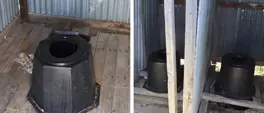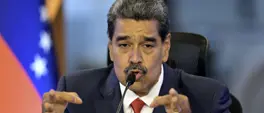Rights groups slam Australian state's child sentencing law
AFP
13 December 2024 | 4:07The state's new conservative government has conceded the new law is 'incompatible' with human rights legislation, but it decided to override existing human rights law because the crime situation was 'exceptional'.
SYDNEY - Rights activists have slammed the Australian state of Queensland's imposition of adult jail sentences on children as young as ten.
The state's new conservative government has conceded the new law is "incompatible" with human rights legislation and will likely have a "greater impact" on Indigenous children.
But it decided to override existing human rights law because the crime situation was "exceptional".
The "Making Queensland Safe" law approved by parliament on Thursday scraps the principle that jail should be a last resort for minors.
It says children from the age of 10 will face the same penalties as adults for 13 serious offences ranging from dangerous driving and home break-ins to murder.
"These laws are the first strike back against the youth crime crisis to start restoring safety where you live," said Queensland Premier David Crisafulli, whose conservative Liberal National Party won October elections.
"We have restored consequences for actions, and put victims' rights ahead of offenders."
The "Adult Crime, Adult Time" legislation was also supported by the state's opposition centre-left Labor lawmakers.
"This is the action that fed-up Queenslanders have demanded," said Queensland Attorney General Deb Frecklington.
Latest official data show the number of child offenders aged 10-17 in Queensland rose six percent year-on-year to 10,878 in the 12 months to June 30, 2023.
Australia's independent Human Rights Law Centre said in a statement after the legislation passed that it would lead to more children being locked up in unsafe watch houses and youth prisons.
It said the law would disproportionately imprison Indigenous children, who have higher rates of incarceration across the country when compared to other Australians.
"These policies do nothing to address the root causes of youth crime -- intergenerational trauma, poverty, systemic racism, and inadequate access to culturally safe support services," said the law centre's national director, Blake Cansdale.
A senior United Nations child rights advocate expressed "dismay" in the run-up to the law's introduction.
Ann Skelton, chair of the UN Committee on the Rights of the Child, said it was "extraordinary" that the state's attorney general had admitted several provisions were a violation of international law.
"We do not agree that the so-called exceptional circumstances warrant what will be a flagrant disregard for children's rights under international law," she said.
"We also don't agree that it will make Queensland safer."
In a legal document tabled in parliament, the state's attorney general said the harsher approach and sentencing for minors were "incompatible with human rights".
"However, I consider that the current situation with respect to youth crime in Queensland is exceptional and therefore the Human Rights Act 2019 will be overridden."
Get the whole picture 💡
Take a look at the topic timeline for all related articles.















